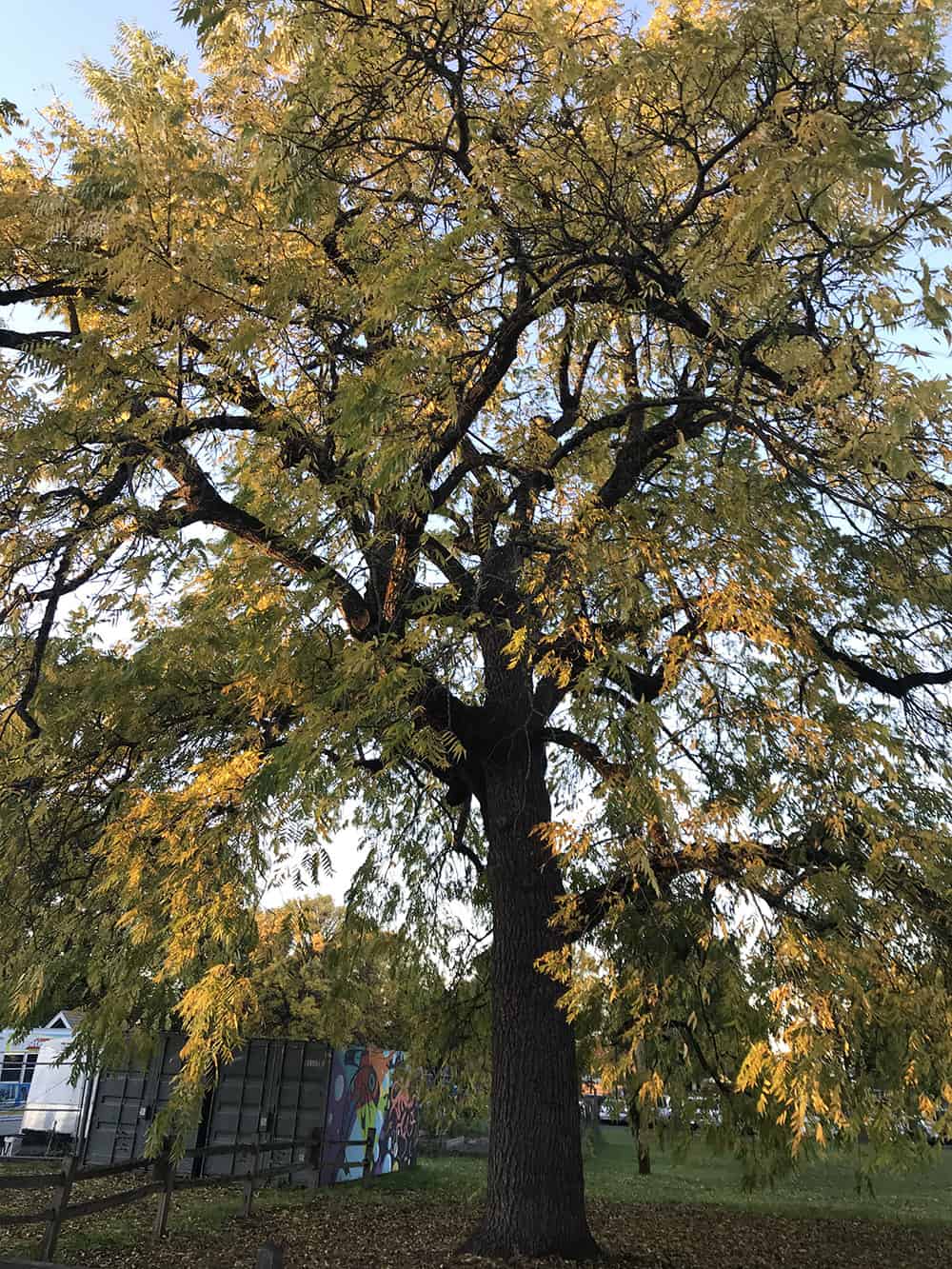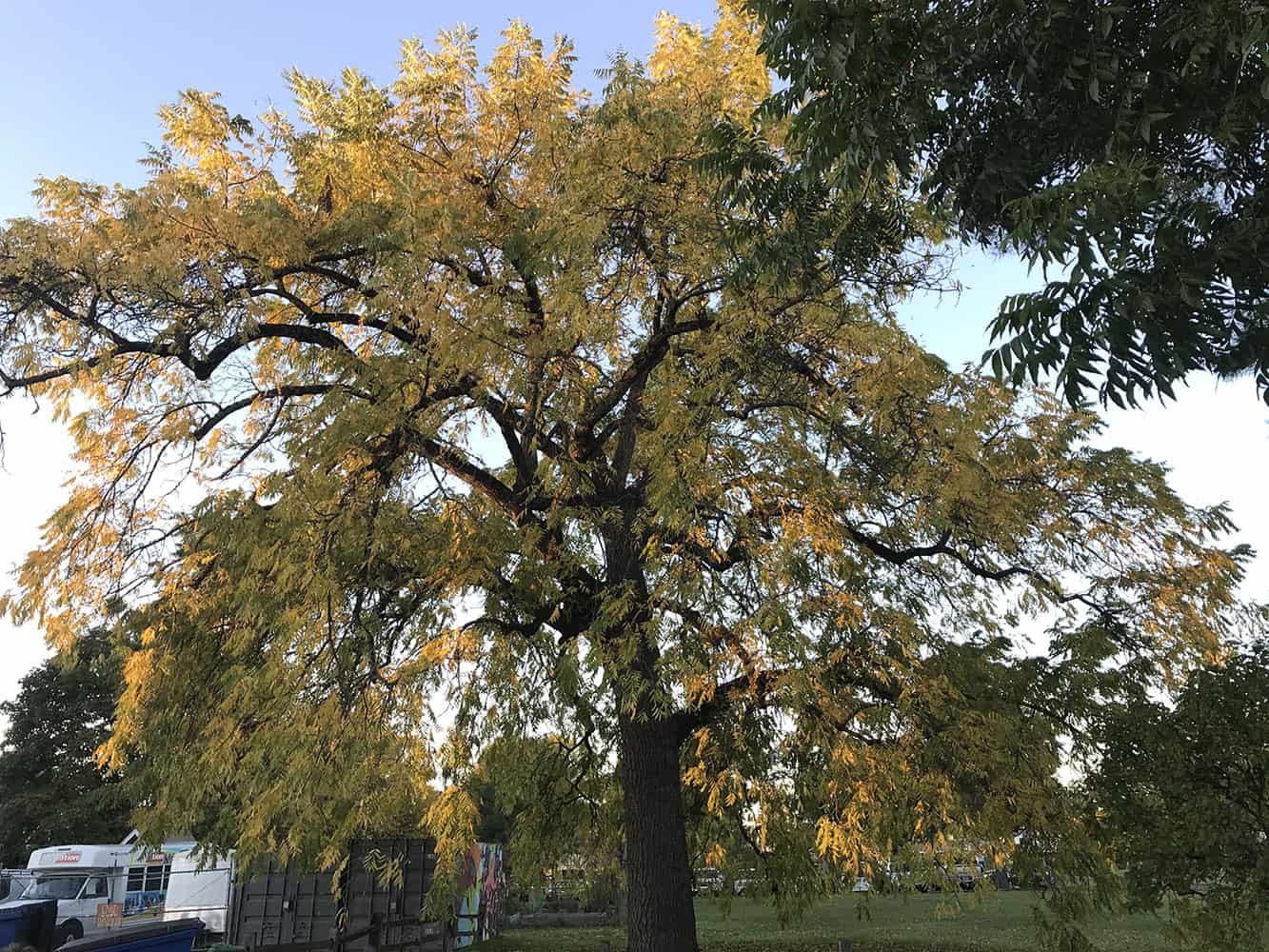| Weight | N/A |
|---|---|
| Dimensions | N/A |
| Botanical Name | Juglans nigra |
| Zone | 4-9 |
| Chill Hours | Needs temperatures between 34°F and 40°F to germinate seeds. |
| Soil | Moist, organically rich, well-drained soil, slightly acidic to alkaline. |
| Light | Full sun |
| Pollination | Self fertile but will produce more nuts with additional pollinizers of Juglans nigra or Juglans Regia |
| Years to Bear | 4-6, 20 years for full crop |
| Form | Tall with rounded or oval crown. Mature trees often have tall trunks with an absence of lower branches. |
| Height | 75-100 feet |
| Spread | 50+ feet |
| Spacing | 15-28 feet depending on desired use. Timber trees are grown closer together than trees grown for nut bearing. Black walnuts are often grown as shade trees in fields, pastures and backyards. |
| Bloom | Yellow green monoecious flowers appear in May or June. Male flowers hang in long hairy kitten and female flowers are upright and inconspicuous. Female flowers ripen into green husked nuts. |
| Ripening Time | Nuts ripen in autumn and fall to the ground in husks where they blacken as they rot away. Young nuts have the best flavor. |
| Fruit | Large rounded oblong drupe of green flesh containing a shelled seed known culinarily as a nut with exceptional flavor and high nutrient density. |
| Pollinator Friendly | All walnut species are sources of nectar and pollen in addition to honeydew. The honeydew yields a fair quality honey that is often used for baking. |
| Special Notes | An important wildlife tree producing mast crops about twice every five years, supporting a large variety of birds, deer and many small mammals, notably the eastern fox squirrel. It is well known as the favorite food of squirrels of all types. |
Black Walnut
$10.00 – $80.00
Juglans Nigra. Extremely fast growing, this is an excellent choice for timber and nut production. Nuts have a characteristic bold flavor that are most well known in baked goods. The only wild tree nut crop harvested in the US; they remain the standard for food staples and wild forest tree crops. The hull has medicinal properties. The black walnut is not typically grown in orchards, the nuts and hulls are used and processed commercially for food and medicine. It is an excellent homestead and landscape tree, fast growing with early production of nuts and a providing generous shade.
Black walnut trees have toxic properties that can affect other plants, but not all plants are sensitive to the toxin. This table from the University of Wisconsin https://hort.extension.wisc.edu/articles/black-walnut-toxicity/ provides some helpful guidelines for planting your black walnut in an existing landscape or garden area where other plants need to be considered.
This plant needs a pollinator. One tree can produce nuts, but for ensured pollination a second tree is recommended. Planting trees of different varieties can improve pollination for both trees.
Our mother tree for this tree is located at Peterson’s barn on Royal Avenue in Eugene (see pictures).
USDA regulations prohibit shipping of Juglans species to the following states: AR, AZ, CA, IA, IL, IN, KS, MI, MO, MS, NE, TX, and WV.





Reviews
There are no reviews yet.